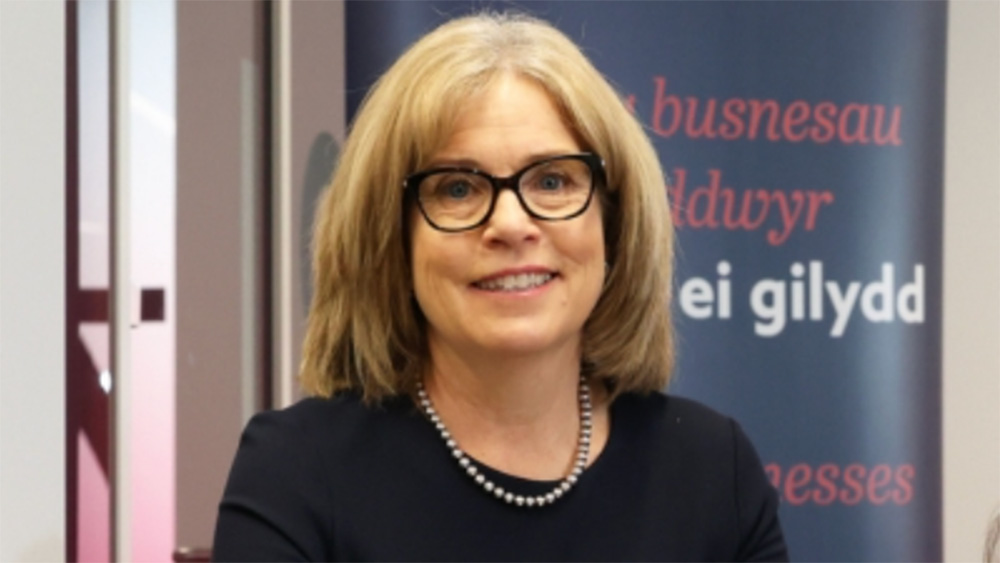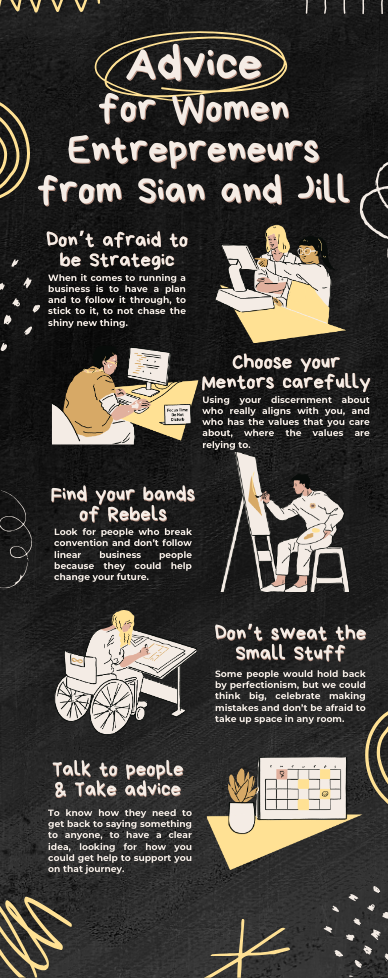Wales is a great place in the UK to start a business, but is there enough support for women entrepreneurs? We speak to some leading female businesspeople to find out about their insights into women in business.
Sian Gunney is a celebrated strategist and motivational consultant in digital marketing, and she stands at the forefront of redefining women entrepreneurial success. Known for her precise action plans and curated introductions, Sian uses her experiences to empower and create opportunities for others. Her commitment to authenticity and empowerment has been instrumental in helping numerous clients achieve their fullest potential while staying true to her values.
Last Thursday afternoon in Toronto in her room, Sian shared her candid insights on women entrepreneurs in Wales. Reflecting on her extensive experience working with top-tier sports figures and influential brands like Dominos Pizza, Britvic and Chrysler, Sian expressed a poignant critique of the current state of female entrepreneurship in Wales.
“I don’t think there’s adequate support out there for business start ups in Wales, and not specifically for those that identify as female entrepreneurs,” Sian said. “I think vast improvements are needed in Wales and particularly Cardiff as a capital city. The business support services to me seem outdated and very much in need of modernization. There should be a central resource, network and app with introduction opportunities and funding and investors and there’s not a streamlined approach. Times are changing but the Welsh business scene has often felt like a clicky, dusty, whitewashed old boys club.”

Meanwhile, Mrs. Jill Jones also expressed her views on female entrepreneurs in Wales. She is currently a PhD student funded by the ESRC at Cardiff University Business School, and she has extensive experience as business angel investor and is a fervent advocate for women in entrepreneurship.
Because her research focuses on gender and the provision of finance to entrepreneurial ventures, she first uses data to indicate that women are facing funding challenges. According to her recollections, 86% of business angels are male, and over 70% of business funding goes to all-male teams. Approximately only 11% of business angels fund all-female teams, with the remainder going to mixed teams.
“I think that’s whilst we still need to ask that question, there probably isn’t enough support for entrepreneurs. It’s still a case that the typical entrepreneur is sort of as being male. Entrepreneurship is very much built around male standards,” said Jill. “We still have a way to go to get support, building organizations, and having discussions like this, raising awareness of the issue.”
As for the challenges faced by women in entrepreneurship, Sian said, “Judgement, network, financial training, investment know how, net worth having investment to build in the way women want to.”
Both Sian and Jill expressed their views on how to improve the current situation for women as a minority group in entrepreneurship.
Sain firstly emphasizes that parents and education systems need to add financial planning and investment training at early stages for females not just males. Then she highlights education and business support services building and supporting access to networks and support to build better relationships not just locally but globally with contacts and alumni.
She also recommends creating constructive criticism classes like debate classes where women gain training on both giving and receiving helpful coaching and feedback.
“How to help not judge, how to support not tear each other down. No other woman is a threat we must learn to cheer and champion each other better.” said Sian.
For Jill, conversations, role models, raising awareness, and starting out knows that women are not on their own and knows where to go for help and advice are important.
“Role models is for women starting out that they can see women who have achieved it, and that makes it much more reliable and achievable,” said Jill. “Raising awareness, holding events, having discussions to just change the idea of what the typical entrepreneur looks like. It’s not necessarily just white male.”

There is the UK business angel association, which is backing female led groups, like Women Angels of Wales (WAW). Jill is one of lead investors of WAW. They are equity investors, which means they invest and take a share of the company. They then build the company alongside the business founders, becoming part of it. They tend to invest at the early stages of business growth. At the onset, their goal is to encourage women to become investors and to invest in women-led businesses.
Business owners in Wales have access to a fabulous support system for equity investment, which includes the co-investment fund. Whatever money they raise within the syndicate, Development Bank Wales matches these funds, effectively giving double that amount to the entrepreneur. If they invest a pound, Development Bank Wales will match it, so the entrepreneur effectively receives twice as much money.
Jill said, “Before investing, people need to have a clear idea of the gap in the market, a clear idea of why they need to develop their product or their service, and how they’re going to get better to achieve that plan.”
This is similar to the advice Sian mentioned for young female entrepreneurs, where Sian said, “When it comes to running a business is to have a plan and follow it through, to stick to it, to not chase the shiny new thing.” They also give many advice for those women who are new in an entrepreneurship.

In Jill’s research, gender is the sort of key differentiator to break down and soon analyze minority group. Therefore, there are more missions.
“Trivial business angels syndicates growing now, which is great,” said Jill. “So it is more awareness of value that business agent investing can bring to minority groups.”
